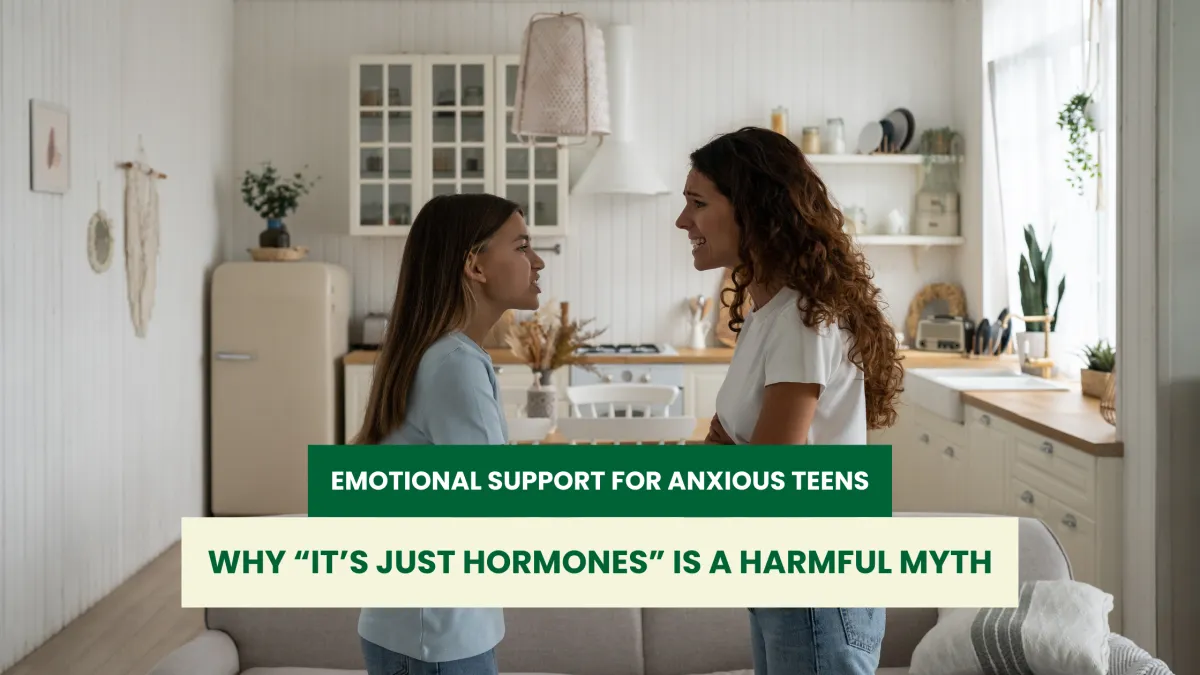
Emotional Support for Anxious Teens: Why “It’s Just Hormones” Is a Harmful Myth
When a teen is overwhelmed, anxious, or emotionally shut down, it’s easy to chalk it up to hormones—but that response can do more harm than good. Teens need something deeper than dismissal—they need consistent, validating, and skill-building care. In this article, we’ll explore why it’s crucial to offer emotional support for anxious teens, and how to replace myths with understanding.
Why “It’s Just Hormones” Is a Harmful Myth
Blaming teen anxiety on hormones alone oversimplifies the problem and discourages teens from opening up. It may even delay early intervention.
To provide real emotional support for anxious teens, we must understand that anxiety isn’t just moodiness or a phase—it’s a condition that affects how teens think, feel, and function.
Here’s why the myth doesn’t help:
It invalidates their emotional experience
It can increase shame around struggling
It prevents families from seeking proper support
The Real Science: What’s Happening in the Teen Brain
Teens experience rapid changes in the brain—particularly in areas that regulate fear, decision-making, and emotional control. While hormones play a role, brain development is a bigger factor in how anxiety shows up.
That’s why emotional support for anxious teens should include:
Helping them understand their anxiety
Offering tools for coping and calming
Normalizing what they’re feeling without minimizing it
How to Offer Emotional Support for Anxious Teens
✅ 1. Validate Their Experience
Try saying:
“That sounds really overwhelming. I believe you.”
Validation is the foundation of trust.
✅ 2. Offer Tools, Not Just Reassurance
Support isn’t about saying “You’ll be fine.” It’s about teaching breathing exercises, grounding techniques, and journaling as ways to manage stress.
✅ 3. Normalize Anxiety Without Minimizing It
Say:
“Lots of teens feel this way—and you’re not alone. I’m here to help.”
This message combines understanding and connection—key to effective emotional support for anxious teens.
Want to dig into neuroscience? This NIMH article on the teen brain is a great resource.
We Can Do Better Than “It’s Just Hormones”
When we replace judgment with curiosity and myths with facts, we create space for healing. Providing emotional support for anxious teens means showing up consistently, staying calm, and being their partner—not their fixer.
👉 Book a Free Consultation and get support from a licensed therapist who understands teen anxiety and how to help.
